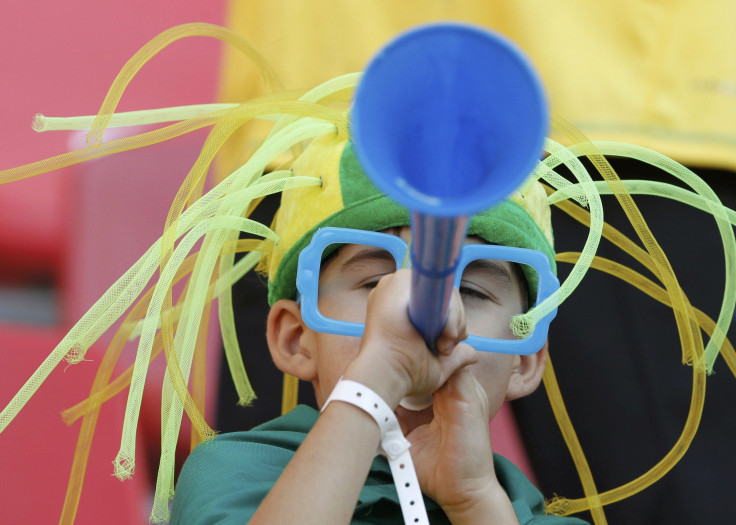FIFA Bans Tablets And Vuvuzelas In World Cup Code Of Conduct

The 2014 World Cup will be different (and arguably better) from the previous edition in one key detail: There will be no vuvuzelas. The ubiquitous plastic trumpets that four years ago filled stadiums in South Africa with a relentless, and very loud, nasal whine have been banned from the Brazil World Cup.
FIFA, the body that governs international soccer and organizes the event, has decided to ban the cheap, mass-produced instruments, whose sound was broadcast deafeningly all over the world from every match in 2010. The regulation is part of a “Stadium Code of Conduct” that FIFA has published on its website.
Some of the banned items are quite obvious: No weapons, narcotics, fireworks, or glass bottles can be introduced in any of the 12 stadiums that host the monthlong tournament. Others could surprise a casual observer of soccer -- why would flour be banned from a sporting event? (Because a bag of flour thrown on the pitch could cause considerable disruption.)
To make sure that the dreaded plastic trumpets are kept out of the venues, the regulation specifically bans “any musical instruments regardless of the size, including vuvuzelas.” Spectators will be frisked before entering the venues, and it’s safe to say that no banned vuvuzelas, even if disassembled, are going to make it into any matches.
FIFA officials are also making sure that no unauthorized images make it out, and have therefore banned not only laptop computers, but also “other devices used for the purposes of transmitting or disseminating sound, pictures, descriptions or results of the events via the internet or other forms of media.” That includes specifically another item that didn’t exist at previous world cups: “tablet PCs,” as the regulation calls them. No iPads, Android or Windows tablets will be let into the stadiums. (The first generation of the first tablet, the Apple iPad, actually debuted in April 2010, two months before that year’s World Cup, but was not widely seen at the tournament.)
However, they haven’t banned cell phones, many of which replicate and sometimes even beat the photo and video capabilities of current tablets. And a specification that cameras are only admitted “for private use” seems hopelessly antiquated, considering that many cameras sold today are able to transmit image files via wifi -- to a nearby phone, for instance, which could then beam the images to the world via the cellular network.
In other words, spectators will be able to easily tweet, Facebook and otherwise disseminate all sorts of images from World Cup matches, even those that FIFA would not necessarily want to have everybody on the earth see. But at least they will do so without the constant din of vuvuzelas around them.
© Copyright IBTimes 2024. All rights reserved.






















